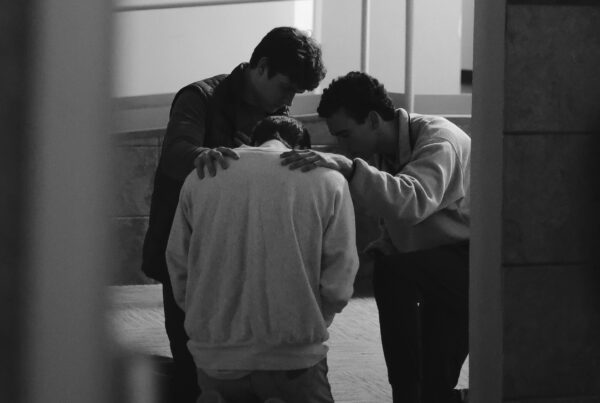As I crossed over to the season of life after college, God has taught me some things to shoot for and grow in as I live out young adulthood. Hopefully these will be helpful to you as you help your students navigate life post grad.
Help them find a local church and encourage them to grow deep roots there.
Many students find work, attend graduate programs, or move back home after college, leaving the communities they have grown to love during college. This can be a deeply difficult and de-stabilizing season. Church attendance and church involvement for post-grads and young adults is proven to drop off after a certain age. To help students deal with this difficult transition, I would suggest developing a list of churches and church planting networks around the country to point students to. Some examples include Acts 29, Salt Network, and NAMB Network. Depending on the size of your ministry, you may be able to reach out to a church on the student’s behalf, asking to help them get connected to a young adults ministry there. Things like this make the cocoon of college a little less scary to leave for the students under our care.
Model continuing growth in spiritual disciplines.
In the busier seasons of life, our spiritual disciplines are likely the first habit out the window. But the longer I live as a Christ-follower, the more I realize my need for these habits in keeping me grounded and rooted in intimacy with Jesus. To be clear, I don’t believe our spiritual disciplines bring us closer to Christ than an abiding trust in the sufficiency we have in Jesus’ sacrifice on the cross. But a continual rhythm of prayer, rest, journaling, and others like these work to whet our appetites for communion with Jesus and desire to look like him in sanctification. You, as college ministry leaders and staffers, are some of the first to ever model this for your students. If they’re anything like me during my time in college, this will prove to be an invaluable example for them.
Challenge them to embrace the awkward seasons of no longer being in college ministry.
Something that was definitely a surprise to me after leaving college ministry was how awkward it felt to be a young adult in the church. Upon talking to many of my peers in the same transition period, I realized I wasn’t alone. My schedule, job, interests, and rest time underwent a makeover and how I expended energy and time in each of these started to look different. This is something the students under your care will inevitably encounter but you can soften the blow by telling them it’s coming. It will be challenging and at times discouraging. But embracing the awkward is worth it. During these months, the Lord has stretched my faith and matured me. He continues to do so. But even with the discomfort and awkwardness, the answer isn’t for them to stick around and try and continue fitting in with the college crowd. I had to leave the nest of college ministry. But it was worth it! Encourage the students leaving your care to be patient with themselves and their growth, because God is patient with all of us.
Discipleship: it doesn’t end at 22. Encourage and invest in those younger than you. Seek to learn from those older than you.
Depending on your ministries’ leadership/discipleship pipelines, investment of this type may have come naturally to the students that chose to buy in and grow roots there. The end of college ministry investment breeds a less concise pathway to discipleship, but that doesn’t mean it’s not there! We are called to keep learning from more seasoned believers in the church that have walked in our shoes. We do this by devoting time to getting to know older men/women in the church outside of the college bubble. But this is also an opportunity for students still in college to learn from the young adults. The heart of this encouragement is found in Psalm 145:12, where we’re called to proclaim his excellencies from one generation to the next. From spending time with people in the next life stage in our churches, we learn what it looks like to serve our local communities, be outward-facing, and live on mission in everyday parts of life. Work, home, hobbies, and errands all prove to be ordinary facets of life that God uses to bring about supernatural experiences and supernatural opportunities to preach and illustrate the gospel to a watching world.
Model being a lifelong learner.
If I had a dollar for every time I read an article, read a book, listened to a podcast/sermon, or went to a conference in college, I would be able to pay at LEAST a few student loan payments. College was a period of great growth and knowledge intake for me. But for many it’s super easy for that learning to be boundaried by the season of college. There are huge gifts for us in our personal growth to continue learning even after we gain a degree. This is something I encourage every student I disciple or invest in. We model this as leaders in college ministry and leaders within the church by continuing to learn ourselves. Theological savvy, political matters, and societal issues such as race each prove to be areas of knowledge where every person can move toward.
As we’ve said before, life after college is weird, uncertain, and at times discouraging. But there are helpful and practical ways to prepare them for the next chapter humbly and winsomely. As we hand them off to the next stage of their growth and development, we can (and should) pass on the gems of warning, wisdom and encouragement that God has used to keep us near him and push us toward a lifelong faithfulness to him.







